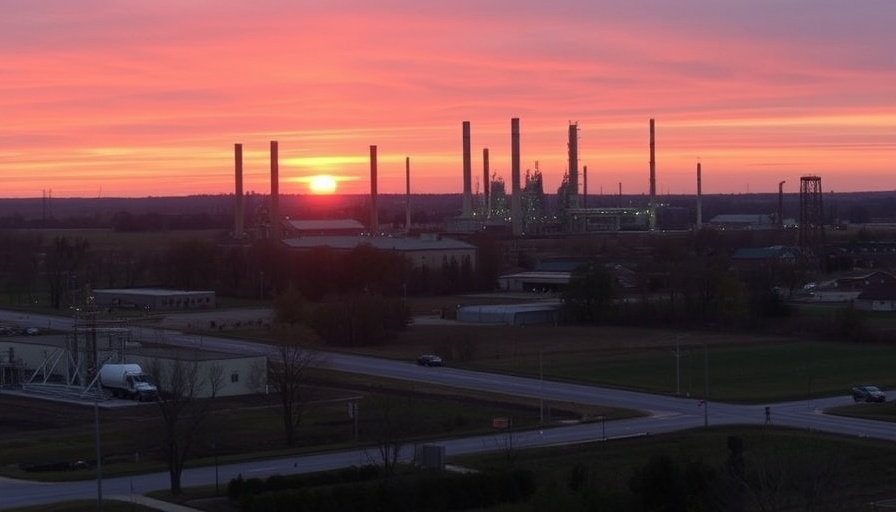
The Struggle of Whiting Residents Against BP's Shadow
The small Indiana town of Whiting, situated along the shores of Lake Michigan, finds itself wrestling with serious concerns tied to the BP refinery looming over its cityscape. Recently, flooding caused by a torrential storm not only led to the temporary shutdown of the largest fuel refinery in the Midwest but also ushered in alarming reports of oil and gas fumes infiltrating locals' homes. Residents began to report symptoms of dizziness and nausea as they faced the aftermath of heavy rains that swept through the area.
The Impacts of Climate Change on Local Communities
Amidst the backdrop of climate change, towns like Whiting become even more vulnerable to agitated weather patterns. As numerous studies highlight, extreme weather events are on the rise. The World Weather Attribution illustrates how climate change has intensified such storms and flooding, rendering parts of the Midwest disproportionately at risk. Residents now grapple with the double-edged sword of industrialization and environmental hazards—concerns that their homes might not only be affected by flooding but also by the repercussions of nearby refinery operations.
Local Energy Dependency vs. Safety Concerns
For communities like Whiting, the challenge is a complicated balance between energy needs and safety. While refineries contribute significantly to fuel supply and local economies, they also introduce potential environmental hazards. BP's environmental compliance issues have been a source of distress for many locals who rely on clean air and water for their families. Carolyn Marsh, a community advocate, voices the sentiments of many when she comments on the potential pollution into Lake Michigan—a vital source of drinking water.
Future Trends: Treading on Thin Ice
As Whiting continues to navigate these challenges, the intersection of climate change effects and industrial risks brings up vital questions about future urban sustainability. The predicted increase in storms may further complicate the already dire safety concerns residents face. Therefore, adequate regulatory measures and open dialogues with energy companies are essential in creating resilient communities.
Empowering Homebuyers: Consider the Environment
For potential homebuyers, this situation emphasizes the need for due diligence regarding local environmental conditions. As awareness regarding sustainability grows, buyers are keen to look for homes that promise not just aesthetic appeal but also safety from environmental hazards. Knowledge of nearby industrial activities, their history, and future risks are critical components of property investment decision-making. This knowledge can help buyers make informed choices that align with both their living standards and sustainable goals.
Why Community Voices Matter
In light of these challenges, the role of community advocacy cannot be underestimated. The voices of local residents, like those engaging in the BP & Whiting Watch group, are vital in holding corporations accountable for their environmental impacts. Collaborative efforts for transparency between residents, local governments, and major corporations can forge paths toward sustainable solutions that prioritize public health and safety.
As the future unfolds, Whiting's situation is a reminder for communities to remain vigilant about balancing their economic needs with environmental stewardship. A proactive approach champions the protection of their homes and inspires other towns facing similar industrial challenges.
For those interested in protecting their environments and investing sustainably, understanding these challenges is crucial. Join local advocacy groups, engage in community discussions, and invest with awareness of environmental impacts.
 Add Row
Add Row  Add
Add 





Write A Comment